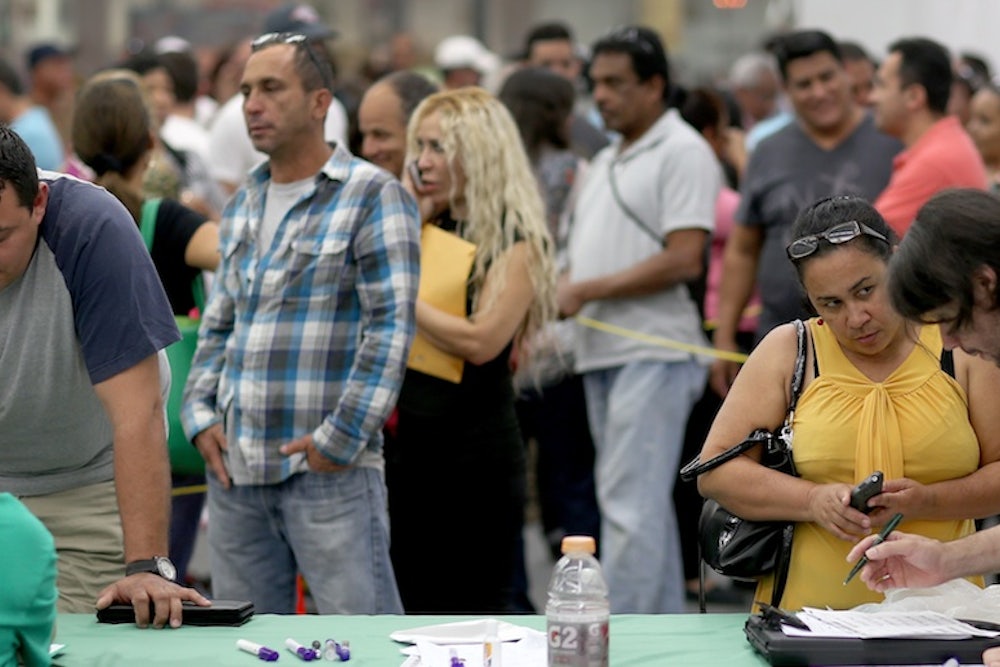
It's impossible to say how big an impact the Affordable Care Act is having on the uninsured. But it's getting impossible to deny that it's having an impact at all.
The latest evidence comes from the Gallup organization, which surveys respondents about insurance status. According to Gallup, the percentage of adults without health insurance has been falling since the middle of last year. Now, Gallup says, it's down to 15.6 percent. That's the lowest rate that Gallup has recorded since late 2008.
These tracking surveys on the uninsured are far from precise. Among other things, people answering these surveys aren't always sure of their own insurance status. Nobody should treat them as gospel.
But Gallup also found the most dramatic change in insurance status among low-income and minority populations, which would be consistent with implementation of a law that has its most dramatic impact on people with the least money. It's also consistent with three other pieces of information
- Health Reform Monitoring Survey. In this survey, conducted by the Urban Institute and supported by the Robert Wood Johnson Foundation, the rate of uninsurance among non-elderly adults fell from 17.6 percent in the first quarter of 2013 to 15.2 percent in the first quarter of 2014.
- The Rand Corporation. According to reporting by Noam Levey of the Los Angeles Times, unpublished research from Rand suggests that the percentage of uninsured Americans fell from 20.9 in late 2013 to 16.6 percent in early 2014.
- Department of Health and Human Services. Late last week, HHS announced that enrollment in Medicaid and CHIP was 3 million higher than it had been in late 2013.
The Congressional Budget Office has projected that 13 million Americans will get health insurance because of Obamacare. Gallup's numbers would correspond to a significantly smaller decline, although the numbers depend on what you choose as a starting point. Then again, Gallup's numbers don't account for the end of open enrollment—when, by all accounts, large numbers of people rushed to sign up for coverage. They also don't account for a full year of enrollment in Medicaid and the Children's Health Insurance Program, since people can sign up for those programs all year long.
In short, it seems pretty clear that, because of Obamacare, more people have health insurance. And, yes, that accounts for people who lost existing coverage because insurers cancelled old policies. The question is how big a difference the law is making. And it's going to be a while before anybody knows.
Note: This item has been updated.
